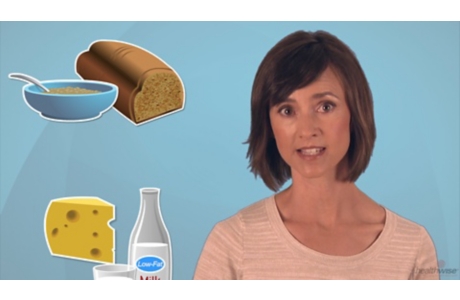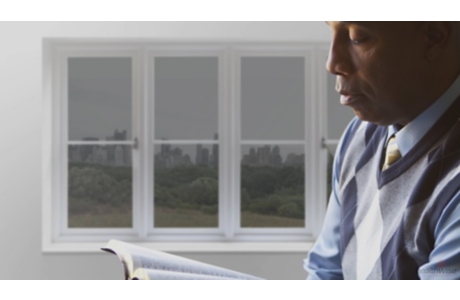Conserving Your Energy
Overview
Conserving, or saving, your energy means finding ways to do daily activities with as little effort as possible. It involves planning tasks, choosing which ones to do first, taking your time, and resting.
Saving your energy may help if you have a long-term (chronic) condition that makes you tired, such as COPD or heart failure. It can also help when you've had an illness, a surgery, or an injury. With some planning and a few tips, you may be able to get tasks done more easily and have more energy to do things you enjoy.
Planning daily activities
Here are some ways you can conserve your energy when doing daily tasks.
- Make a list of what you have to do, and choose the order.
Start with the things that are most important to you. Split up tasks into smaller steps. And hold off on doing things you don't need to do.
- Group the tasks.
Do all the chores you have in one part of your home at around the same time.
- Do the most tiring errands and chores when you have the most energy, if you can.
These might be things like bathing, house cleaning, and laundry. Try to do them in the morning or after a rest.
- Alternate doing tasks that are very tiring with lighter ones.
- Leave plenty of time to do tasks or to get places.
Adding extra time will keep you from feeling rushed and breathless.
- Plan rest times and take breaks before you feel tired.
It will help you recover faster than if you rest after you are already tired.
- Give some of your tasks to other people, if you can.
Try to accept help if it's offered.
- Accept that you may not be able to do things in the same way you did before.
Getting around and doing activities
There are many things you can do to save your energy when moving through your day. Here are some ideas.
- Use tools that make things easier.
Tools like walkers, canes, handrails, and grab bars help you move around. Grabber tools can make it easier to do things without reaching or bending down.
- Go slowly when you move around or do an activity.
- Sit down as often as you can when you bathe, get dressed, do chores, or prepare meals.
- Use a raised toilet seat to avoid bending too far to sit or stand up.
- Use a cart with wheels to roll items from one place to another.
- Push or slide large items instead of lifting them.
- Get a doctor's note for work.
If you have a job that requires lots of standing or is tiring, you may be able to get a note from your doctor requesting rest breaks or other adjustments to help you do your work.
- Use a belt bag or clothes with pockets to carry things around.
This way, you won't need to make extra trips to get things.
- Limit the trips you take up stairs.
- If your home has stairs, try to spend time downstairs most of the time. If you sleep upstairs, think about setting up a room for sleeping downstairs instead.
- Put cleaning supplies in more than one part of your home so you don't have to carry them too far or up stairs.
- Seek support if you have young children.
If possible, use day care or ask others for help with things like mealtimes and bathing.
Reaching for and grabbing items
Plan some ways to conserve your energy when you need to reach or grab something. Here are some ideas.
- Put the things you use the most onto shelves or counters that are easy to get to without bending down or reaching up.
Bending and reaching can make you tired quickly.
- Use long-handled grabbers or other tools to reach items on a high shelf or to pick up things off the floor.
- Use long-handled dusters when you clean.
Bathing and dressing
Here are some ways you can conserve your energy when bathing and dressing.
- Sit on a shower chair or stool while you bathe and dry off.
Place soap, shampoo, and a towel where you can reach them while sitting.
- Sit down as long as you can while getting dressed and undressed.
And sit down while you do things like combing your hair.
- Wear tops and sweaters that have zippers or buttons so you don't have to pull them over your head.
- Use tools to help you bathe and get dressed.
A sponge or brush with a long handle can help you wash your feet and back. And a long-handled shoehorn can help you put on your shoes.
Eating
Here are some ideas for saving your energy when you eat.
- Try eating smaller meals more often throughout the day instead of a few larger meals.
- Plan time to eat.
Give yourself plenty of time.
- Rest after you eat and before you clean up.
- Let dishes air dry.
- Ask your doctor about services that deliver meals.
Having sex
If you have a health condition that makes you tired, or if you're recovering from illness or injury, here are some ideas for conserving energy when you have sex or intimate time.
- Think about what could help you be more comfortable.
Share your thoughts with your partner or partners, and come up with solutions together.
- Be well rested before having sex.
- Choose the time of day when you have more energy.
- If you have breathing problems, clear your lungs beforehand.
Use your bronchodilator medicine before you have sex. This can improve your shortness of breath.
- Take your time, take it easy, and enjoy one another.
- Think about trying new ways of doing things.
Switch positions, or try other ways of being close, such as touching, kissing, and hugging.
- Stop and rest if you have trouble breathing or you feel tired.
- If you are having sexual problems, talk with your doctor.
Your doctor can help you get information, support, and advice so you can enjoy sex again.
Credits
Current as of: October 24, 2023
Author: Healthwise Staff
Clinical Review Board
All Healthwise education is reviewed by a team that includes physicians, nurses, advanced practitioners, registered dieticians, and other healthcare professionals.
Current as of: October 24, 2023
Author: Healthwise Staff
Clinical Review Board
All Healthwise education is reviewed by a team that includes physicians, nurses, advanced practitioners, registered dieticians, and other healthcare professionals.
This information does not replace the advice of a doctor. Healthwise, Incorporated, disclaims any warranty or liability for your use of this information. Your use of this information means that you agree to the Terms of Use. Learn how we develop our content.



